Potřebujeme váš souhlas k využití jednotlivých dat, aby se vám mimo jiné mohly ukazovat informace týkající se vašich zájmů. Souhlas udělíte kliknutím na tlačítko „OK“.
ASTM E1658-08
Standard Terminology for Expressing Conclusions of Forensic Document Examiners (Withdrawn 2017)
Automaticky přeložený název:
Standardní Terminologie pro vyjádření závěry soudního vyšetřovatelů dokumentů
NORMA vydána dne 15.8.2008
Informace o normě:
Označení normy: ASTM E1658-08
Poznámka: NEPLATNÁ
Datum vydání normy: 15.8.2008
Kód zboží: NS-42544
Počet stran: 3
Přibližná hmotnost: 9 g (0.02 liber)
Země: Americká technická norma
Kategorie: Technické normy ASTM
Kategorie - podobné normy:
Anotace textu normy ASTM E1658-08 :
Keywords:
Conclusions, Document examiners, Forensic document examiners, Forensic investigation/analysis, Terminology--forensic analysis, ICS Number Code 01.040.11 (Health care technology (Vocabularies))
Doplňující informace
| Significance and Use | ||
|
Document examiners begin examinations from a point of neutrality. There are an infinite number of gradations of opinion toward an identification or toward an elimination. It is in those cases wherein the opinion is less than definite that careful attention is especially needed in the choice of language used to convey the weight of the evidence. Common sense dictates that we must limit the terminology we use in expressing our degrees of confidence in the evidence to terms that are readily understandable to those who use our services (including investigators, attorneys, judges, and jury members), as well as to other document examiners. The expressions used to differentiate the gradations of opinions should not be considered as strongly defined “categories”. These expressions should be guidelines without sharply defined boundaries. When a forensic document examiner chooses to use one of the terms defined below, the listener or reader can assume that this is what the examiner intended the term to mean. To avoid the possibility of misinterpretation of a term where the expert is not present to explain the guidelines in this standard, the appropriate definition(s) could be quoted in or appended to reports. The examples are given both in the first person and in third person since both methods of reporting are used by document examiners and since both forms meet the main purpose of the standard, i. e., to suggest terminology that is readily understandable. These examples should not be regarded as the only ways to utilize probability statements in reports and testimony. In following any guidelines, the examiner should always bear in mind that sometimes the examination will lead into paths that cannot be anticipated and that no guidelines can cover exactly. Although the material that follows deals with handwriting, forensic document examiners may apply this terminology to other examinations within the scope of their work, as described in Guide E 444, and it may be used by forensic examiners in other areas, as appropriate. This standard does not purport to address all of the safety concerns, if any, associated with its use. It is the responsibility of the user of this standard to establish appropriate safety and health practices and determine the applicability of regulatory limitations prior to use. |
||
| 1. Scope | ||
|
1.1 This terminology is intended to assist forensic document examiners in expressing conclusions or opinions based on their examinations. 1.2 The terms in this terminology are based on the report of a committee of the Questioned Document Section of the American Academy of Forensic Science that was adopted as the recommended guidelines in reports and testimony by the Questioned Document Section of the American Academy of Forensic Science and the American Board of Forensic Document Examiners . |
||
| 2. Referenced Documents | ||
|
Podobné normy:
Historická
1.3.2013
Historická
1.5.2010
Historická
1.6.2013
Historická
1.6.2011
Historická
1.3.2009
Historická
1.12.2011


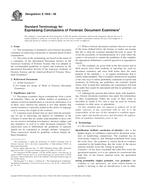
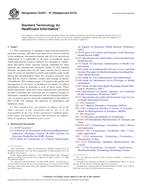 ASTM E2457-07(2013)..
ASTM E2457-07(2013)..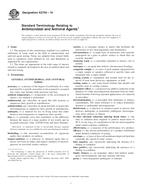 ASTM E2756-10
ASTM E2756-10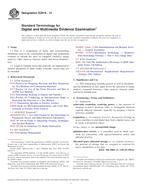 ASTM E2916-13
ASTM E2916-13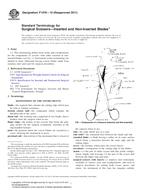 ASTM F1078-10(2011)..
ASTM F1078-10(2011)..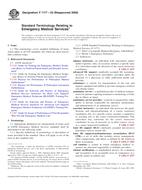 ASTM F1177-02(2009)..
ASTM F1177-02(2009)..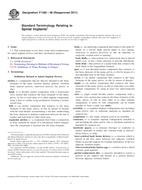 ASTM F1582-98(2011)..
ASTM F1582-98(2011)..
 Cookies
Cookies
